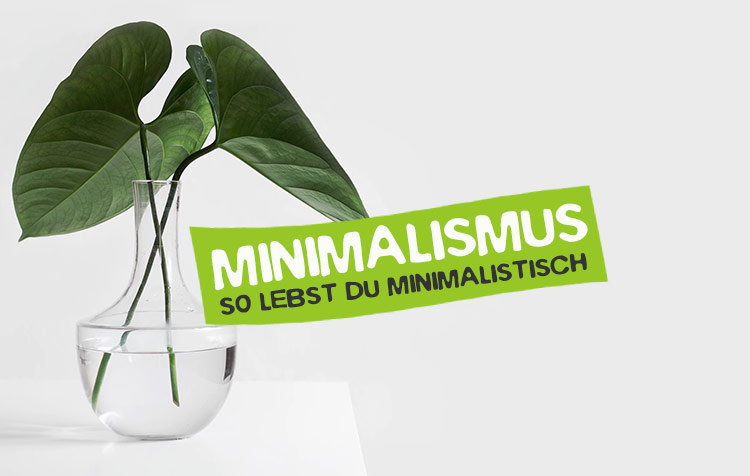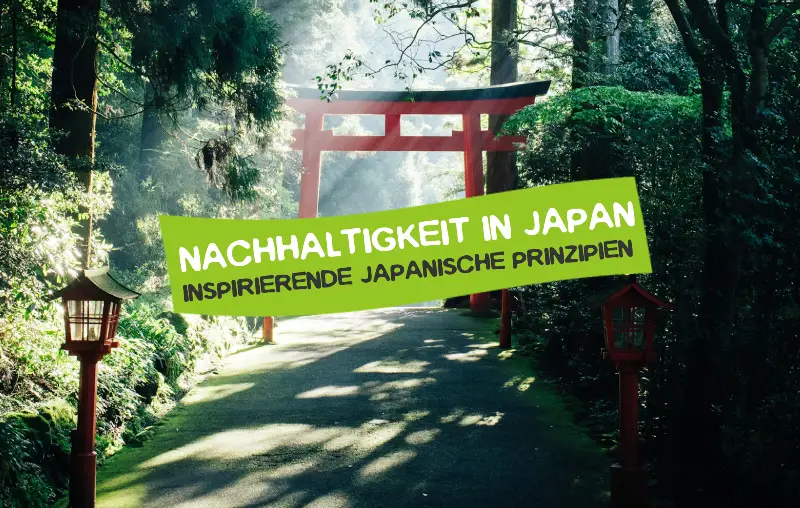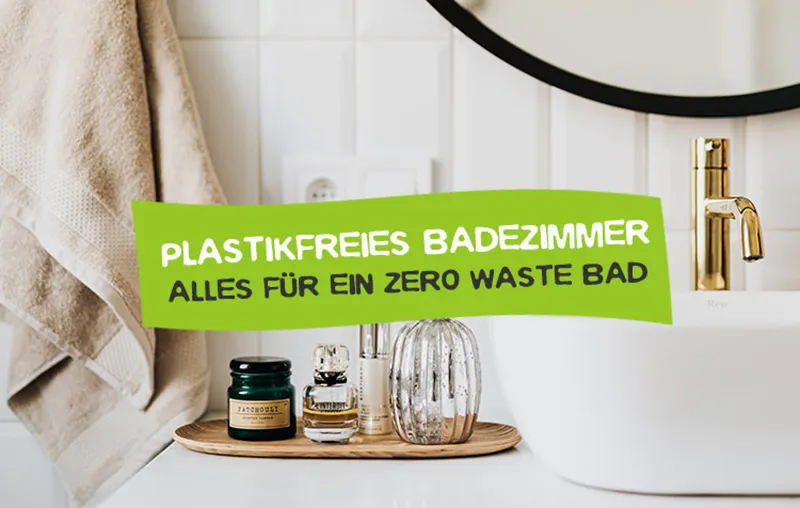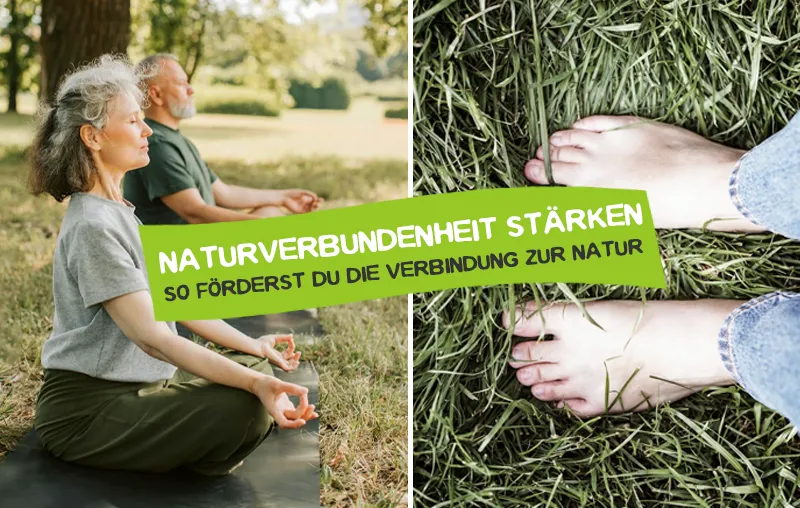Are you looking for opportunities to learn more about environmental protection and sustainability? Whether alongside your job, full-time or at the weekend - whether in Berlin, Hamburg, Munich, Cologne or via e-learning from anywhere in the world - you've come to the right place! Many people want to make the world a better place professionally and are therefore looking for ways to acquire more knowledge about sustainable action. Fortunately, there is a whole cornucopia of possibilities!
In this article, I would like to give you a brief overview of how you can educate yourself in environmental protection!
Here is in advance already a small Overview for you:
- Further training
- Training, seminars & courses
- Education
- Attendance studies
- Distance learning
- Courses
- Coaching
- Internship
- Independent learning
What opportunities do I have for further training in the field of environmental protection & sustainability?
I think it's great that you are committed to a better world and a more sustainable lifestyle to promote environmental protection and find solutions for the Environmental problems of our time to push ahead. Here are the best options currently available to us, with something guaranteed for everyone.
1. further training
Further training is simply about this, deepen previous professional knowledge or a new subject area, such as sustainability. If you want to deepen your knowledge in the field of the environment, you could, for example, do further training to become an education officer for sustainable development or a CSR and sustainability manager.
Further training courses can generally be in person in your area and, of course, digitally online from home both part-time and full-time. Accordingly, further training can take several months or even years. For example, I have already completed several training courses via e-learning in the course of my self-employment.
2. trainings, seminars & courses

In the case of training courses, seminars and courses, the time horizon is much shorter, as they are sometimes only completed in one day or weekend or over a period of a few weeks. They are certainly among the environmental protection training courses that provide an opportunity to familiarize yourself with the subject area of environmental protection. to get a taste of it or itself to specialize specifically in a particular area of sustainable action.
Appropriate courses, training and seminars are then offered, for example within your own company, at universities or adult education centers. But of course there are also online courses that can be completed from home. The training courses and seminars usually end with the award of a certificate.
3. training
For many people, an apprenticeship is the Start your own professional career. For others, it is an opportunity to retrain. The duration of training can be estimated at around 3 years. Whether as a horticulturist and landscaper, recycling and waste management professional, building services engineer or wind energy technician: there are hundreds of great apprenticeships that will allow you to further your education in the field of environmental protection.
Tip: Are you looking for a job with added value for you, the environment and our society? Then take a look at the sustainable job portal inside! You're guaranteed to find what you're looking for!
4. attendance studies
You complete an on-campus study program (whether Bachelor's or Master's) in Full-time on site. However, there is usually still some time to find a suitable part-time job. Whether environmental engineering, renewable energies, environmental sciences or biological diversity: there are hundreds of great opportunities to study in the field of environmental protection and sustainability.
At sustainable courses I have given you a Detailed list of current study programs with the most important information.
5. distance learning

The distance learning program is easier to complete while working, but is still Often a full-time course of study. However, you are much more flexible when it comes to your environmental protection training. The duration of the course does not differ from a traditional on-campus course and basically depends on the focus of the course.
6. online courses
Classic online courses are another training option in the area of sustainability. Sometimes they are offered by Online universitiesbut often also from expert bloggers or scientists offered. The duration of the courses varies enormously from a few days to several years. Basically, however, with online courses you are Extremely flexible and can continue them as soon as you have time. Independent learning is the be-all and end-all here.
I have given you a list of sustainable online courses that you basically immediately if you feel like it. They range from waste avoidance, mucking out and decluttering to becoming a vegan nutritionist.
7. coaching
Coaching is generally understood to be a more private consultation in which you build up in-depth knowledge about topics such as environmental protection and sustainable action through structured discussions with an expert. They take place digitally or in person on site. The exact time period varies depending on the offer. Coaching sessions are particularly exciting for people who build up a wealth of knowledge as quickly as possible want to become better at what they do or want to do. (Keyword business start-up)
Tip: Also for the sustainable reasons I will give you lots of information and advice separately.
8. internships
I even completed a two-week internship before my studies to gain some experience in advance. I would advise anyone who wants to continue their education or is specifically looking for further training in environmental protection to do this. The time horizon can vary from a few weeks to up to a year. Basically, you will trained by experienced employees and introduced to the tasks of the respective position.
Important: A voluntary social year can also have the effect of building up a wealth of experience in a specific area of environmental protection. More at Volunteering abroad.
9. independent learning

You don't need a certificate for everything you learn. To be honest, you only need it for very few things! Last but not least, here is what I think is the most important point if you are looking for ways to continue your education in the long term: self-taught learning based on absolute self-interest. Because you need the latter as a constant source of motivation if you want to learn as much as possible as quickly as possible. Here are some ways and places to teach yourself:
- Blogs & Websites (e.g. the Sustainability blog from CareElite)
- Podcasts (e.g. a mindful mess from DariaDaria)
- Books (see the best books about sustainability)
- Magazines (e.g. the Enorm magazine)
Do you know of any other ways of acquiring more knowledge about environmental protection? Then feel free to write me a comment!
Training on the topic of sustainability? You have countless possibilities
Whether time-saving and flexible and at home or directly in person at the place of study - whether energy technology or species protection - whether education, internship, training or further education: welcome to the world of unlimited possibilities!
I hope that I have been able to provide you with valuable tips and ways to further your education in the fields of environmental protection and sustainability.
Do you have any questions or further tips for other readers? Then simply write a comment below this article.
Stay sustainable and inquisitive,

PS.: Have a look at the Environmental protection blog around. There you will learn, for example, to what extent Extreme weather linked to climate change.




